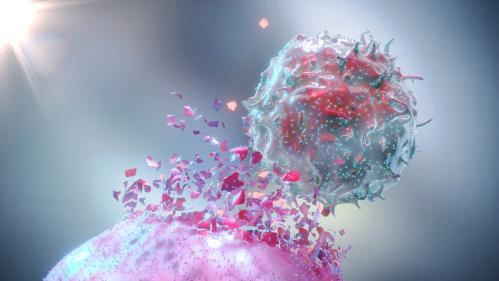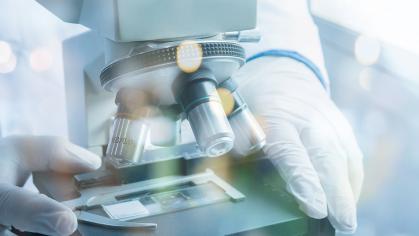Rutgers Office for Research Innovation Ventures (now Technology Transfer) Announces the Signing of an Exclusive License Agreement with Sauvie BiKE, LLC

Rutgers Office for Research’s Innovation Ventures (now Technology Transfer) has executed an exclusive license agreement between the university and Sauvie BiKE, LLC, a subsidiary of Sauvie Inc., to develop and commercialize a bi-specific natural killer cell engager technology in the field of oncology.
The technology exclusively licensed to Sauvie BiKE, LLC was developed at Rutgers by Arash Hatefi, PhD, professor of Pharmaceutics at Rutgers’ Ernest Mario School of Pharmacy. Hatefi and his team developed a high affinity and high specificity bispecific natural killer (NK) cell engager that links NK cells to cancer cells to leverage the powerful anti-tumor properties of NK cells.
Natural killer cells are lymphocytes that were first identified for their ability to fight infections and diseases such as cancer without deliberate immunization. To evade NK cell surveillance, tumor cells mask their surfaces and/or create an environment that puts NK cells into inactive mode. Dr. Hatefi and his team discovered a bispecific Natural Killer cell engager (BiKE) with high affinity and high specificity towards the CD16a activating receptor on NK cells and HER2 antigen on cancer cells. HER2 – human epidermal growth factor receptor 2 – is a protein found on the surface of cancers of epithelial origin, including breast, ovarian, lung, gastric, and colon among others. Therefore, this innovation discovered at Rutgers has the potential to target various HER2-positive cancers.
Following a rigorous review by industry expert reviewers, Dr. Hatefi received funding from the Rutgers HealthAdvance Fund® to continue further development of this technology in his lab. The HealthAdvance Fund® is partly supported by the NIH Research Evaluation And Commercialization Hub (REACH) initiative and provides funding and expert guidance to Rutgers researchers developing innovative/promising technologies that impact human health.
“I am thrilled with the agreement and collaboration between Rutgers and Sauvie to advance my research into new nanobody formats such as bispecific natural killer cell engagers that are capable of stimulating the NK cells, amplifying not only their direct role in tumor eradication, but also their function in inducing multicellular immune responses ultimately resulting in enduring tumor control,” said Hatefi. “Our goal is to develop nanobody formats that are capable of stimulating the NK cells, amplifying not only their direct role in tumor eradication, but also their function in inducing multicellular immune responses that ultimately results in enduring tumor control.”
"Dr. Hatefi’s research has the potential to make a difference in the treatment of certain cancers,” said Tatiana Litvin-Vechnyak, Associate Vice President of Rutgers Office for Research’s Innovation Ventures (now Technology Transfer), the technology transfer department for the university. “From the HealthAdvance funding through this agreement with Sauvie, Innovation Ventures (now Technology Transfer) has worked to support Dr. Hatefi and his work, and we look forward to seeing what the team will accomplish next.”
About Rutgers HealthAdvance Fund®
The Rutgers HealthAdvance Fund® is partially supported by the National Heart, Lung, And Blood Institute of the National Institutes of Health under Award Number U01HL150852. The content is solely the responsibility of the authors and does not necessarily represent the official views of the National Institutes of Health.



